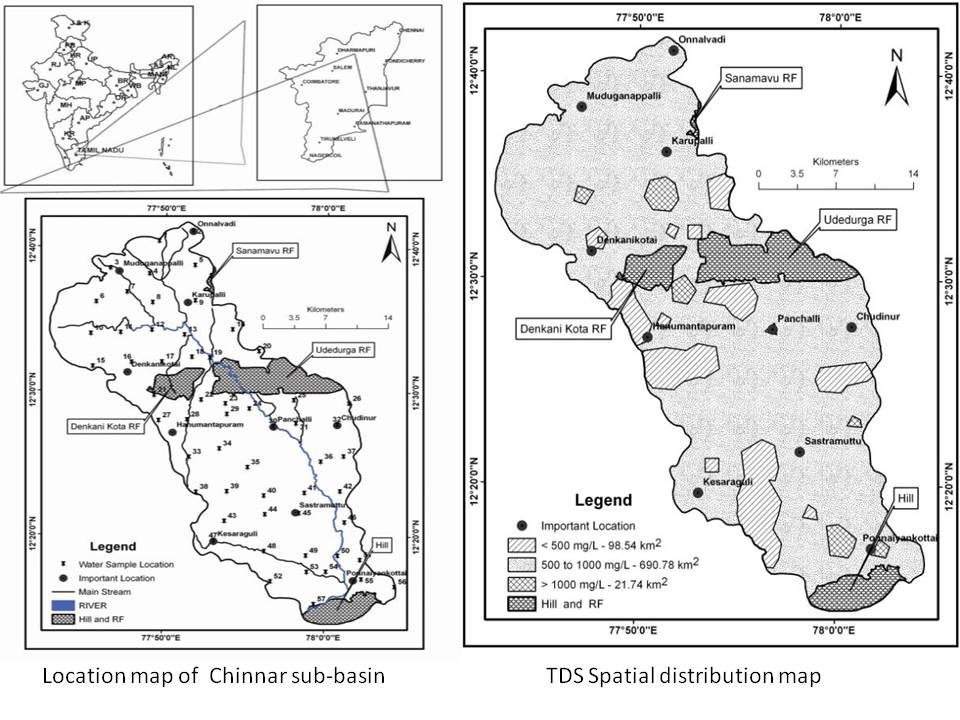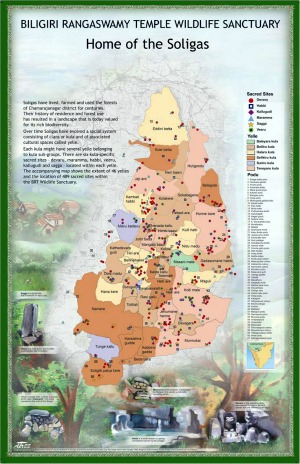/regions/south-deccan-plateau
South Deccan Plateau
Once upon a lake: A report on the current status of the lakes of Mahadevpura constituency, Bengaluru with recommendations for restoration
Posted on 23 Feb, 2012 05:55 PMMap of the lakes in Bengaluru, source: ATREE
Challenges for achieving conservation and development - A presentation by Elinor Ostrom at the Khoshoo memorial lecture, ATREE
Posted on 22 Feb, 2012 06:52 PM
Water quality monitoring of lakes in and around Bangalore city
Posted on 07 Feb, 2012 03:05 PMIt describes the efforts undertaken by the Karnataka State Pollution Control Board to launch a programme to monitor the water quality of some of the lakes in Bangalore so as to focus the attention of concerned governmental organisations to take up remedial measures to safe guard the water bodies of the "Garden City".
The sources of pollution in lakes are mainly identified as:
Planning as commoning - Transformation of a Bangalore lake - Paper published in the EPW
Posted on 02 Feb, 2012 11:30 AMThis paper published in the Economic and Political Weekly argues that the transformation of human settlements over time can affect the relationship between communities and commons when, for example, social geographies change from rural to urban, or from traditional systems of management to modern bureaucratic systems.
Evaluation of physico-chemical characteristics in groundwater using GIS – A case study of Chinnar sub-basin, Cauvery River, Tamil Nadu, India
Posted on 20 Jan, 2012 04:26 PMThe study found that the groundwater of the basin is extremely hard with total hardness, magnesium and potassium contents being above the permissible limits. Thirty nine out of 57 samples exceed the allowable limits for fluoride.

Groundwater hydrology and groundwater quality in and around Bangalore city - Department of Mines and Geology (2011)
Posted on 19 Jan, 2012 11:04 AMEarlier studies carried out by the Department of Mines and Geology during 1994, 1995 and 2003 on the groundwater quality of Bangalore Metropolis had found that the groundwater pollution in the city has mainly been due to sewage disposal and recommendations have been made to prevent pollution from sewage and industrial wastes.
Dynamic groundwater resources of Karnataka (2009)
Posted on 16 Jan, 2012 11:05 PMIt also presents the status of utilisation of groundwater in Karnataka as on March 2009, both on watershed (sub catchment) and taluk wise areas having 2008-2009 as the base year. The methodology is improved as the estimations are carried out on watershed basis for both command and non command separately than apportioned to taluks.
Democratisation of water management - The experience of Tamil Nadu with governance reforms
Posted on 09 Jan, 2012 12:18 PMNor is the introduction of the private sector and the reduction in the role of the government going to help. Rather, the time has come to introduce changes at the basic or the fundamental level in the way in which the water sector functions.
There is an urgent need to bring about reforms in governance by moving towards decentralisation and democratisation, leading to involvement of people from all the sections of the society, who know and understand that they are responsible for the system and its functioning, as well as by introducing principles of equity and social justice. The papers demonstrate the successful implementation of this approach by describing the experience of Tamil Nadu at democratising water management through introduction of reforms at the level of governance, through involvement of the Tamil Nadu Water Supply and Drainage Board (TWAD).
Koodam – Breaking hierarchy, building democracy - Paper published in Integral Leadership Review
Posted on 08 Jan, 2012 03:59 PMThe paper published in the Integral Leadership Review argues that hierarchy and bureaucracy are two of the most common features of governance systems that play a determining role in shaping the organisational culture, systemic re
Trouble in Tigerland: Why conservation efforts continue to fail
Posted on 30 Nov, 2011 11:53 AMGuest Post: Nitin Rai, Ashoka Trust for Research in Ecology and the Environment (ATREE)
Drawing upon his experience working with the Soligas who live within the Biligiri Rangaswamy Temple Wildlife Sanctuary, Nitin Rai talks about the ‘wilderness’ myth and explores the origins and impacts of the belief that people and animals cannot co-exist.

